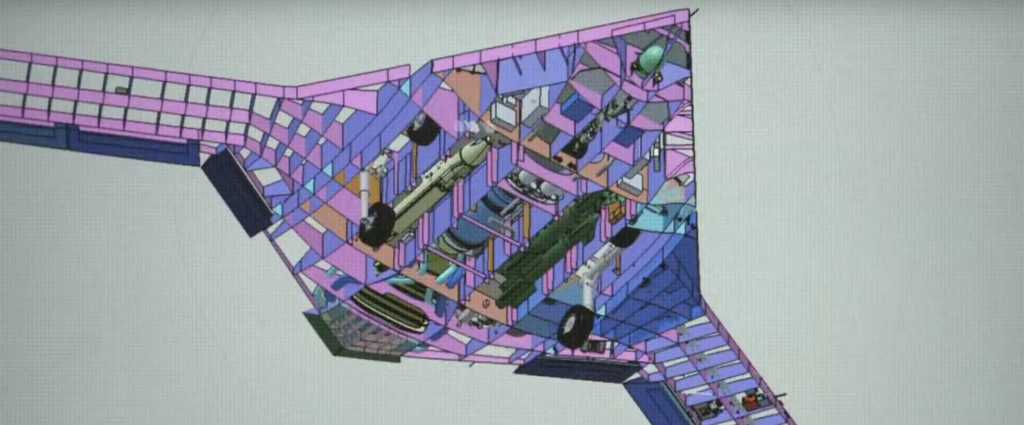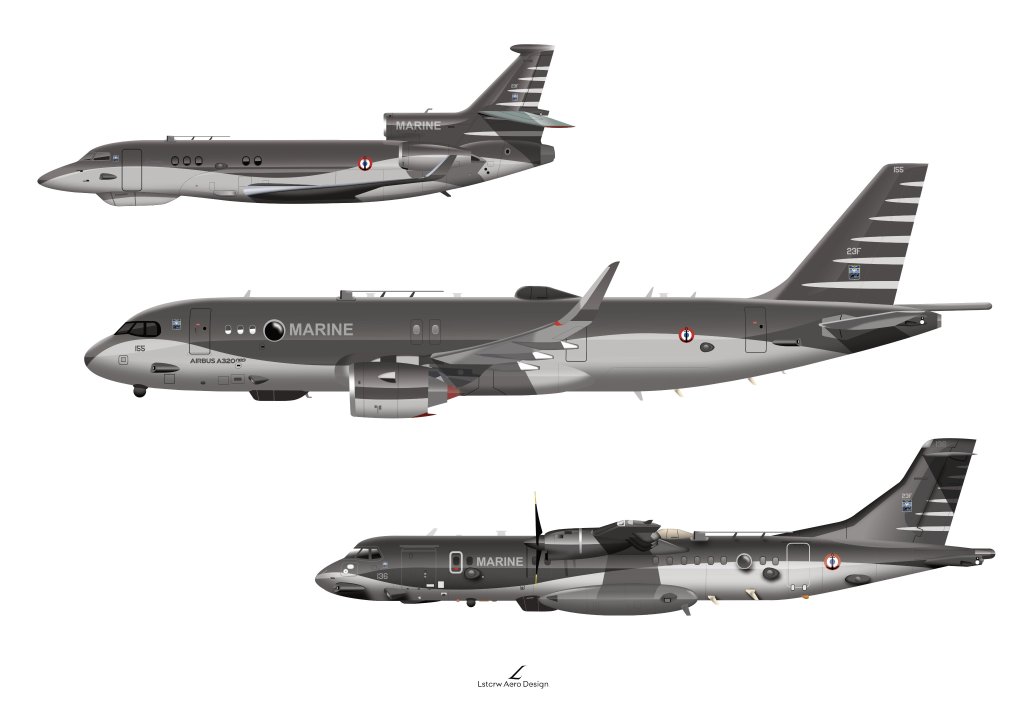Following last week’s colourful hearing of Dassault CEO Eric Trappier, the French Senate is continuing its series of hearings on the Future Combat Air System (FCAS). Today was the turn of Airbus, represented by Airbus Defense & Space CEO Dirk Hoke, accompanied by Antoine Bouvier, Airbus’ director of strategy, mergers and public affairs, and former CEO of MBDA.
The hearing was conducted fully in French, as Dirk Hoke is a fluent speaker:
It was followed by a hearing of Minister of the Armed Forces Florence Parly, on the update (or rather lack thereof) of the French Military Planning Law (LPM). Here is a summary of their hearing of the Airbus executives:
- Mr Bouvier started by remarking that in the 80s, European countries started new fighter programs, which resulted in three separate fighters, which have been produced at 1500 units in total. Meanwhile, the USA produced the F-16 and made 4500 units, and have 3000 F-35 on order, including sales to 8 European countries. He stated the goal of FCAS is to catch up with the lead the US have created. He also argued that the development costs of future programs will be much higher than previous ones, so the latter are not a good basis for comparison.
- He mentioned that although Spain and Germany have designated Airbus as their industrial lead for the program, and that the corresponding workshare will be carried out at Airbus sites in these countries, Airbus France also has a 1% workshare in the program.
- One of his major points was that there is a big cultural difference between France and the other countries. In France, when people think of cooperation they think about the Dassault model of cooperation, with a strong prime having sole design authority, and that carries alone the responsibility of meeting specifications, budgets and deadlines, and supervises suppliers. This was the model Dassault used on the Neuron stealth UCAV. On the other hand, Spain and Germany are accustomed to the Eurofighter model, where the industries of the four countries are equal partners, with a balanced workshare and a shared program governance.
- He then emphasized the role of Airbus in building a European industrial base, and argued that badmouthing Airbus is a symptom of isolationism. He called for rebuilding a climate of trust, and stopping the arguments and polemics that have been polluting the debate in the last week.

Dirk Hoke then presented his view of the program:
- He opened by saying FCAS can only be built in cooperation, with each country receiving a workshare corresponding to its investment. He mentioned the 7 pillars of FCAS (Next-Gen Fighter NGF, future jet engine, combat cloud, sensors, stealth, remote carriers and overall architecture) and said that Spain had the lead on the sensors and stealth. 5 of the 7 pillars have been finalized, presumably meaning there is an agreement on how to move into the demonstrator phase. On the NGF, this is not the case and the governance and the allocation of the work packages is still in discussion.
- He said that Airbus agrees with Dassault that on the NGF, there must be a prime that is actually in charge, and that has the means to take decisions. However, he said the prime must not control and decide everything. He wants to be a partner, not a supplier to Dassault, take part in the decision and receive knowledge transfers. He disclosed that he proposed to Dassault a deal under which if there is a disagreement and time is pressing, Dassault can make the decision alone. On the 6 strategic work packages for the NGF, he proposed the Dassault keeps 4 while Airbus Spain and Airbus Germany each get one.
- He also said that Thales, which is often not mentioned in FCAS discussions, is working with Airbus on the combat cloud.
- For him, it is important that the various companies demonstrate that they can work well together on this phase of the project, because it will States the confidence to start they need to start the other phases, ie full-scale development and production.
- He tried to counter Trappier’s example of the flight control system , which the Dassault CEO said are one of his areas of expertise and that Airbus wanted to split between France, Germany and Spain, by saying that there are already 150 engineers working on flight control systems in Manching, Germany. He also emphasized that Spain is bringing specific expertise in various domains.
- Getting back at Trappier’s mention of a Plan B, he said that there is no plan B, and no alternative.
- Regarding the timeline, he reminded the audience that if there is not an agreement by June, the request for funding will not be able to be presented to the Bundestag before the next election, causing a very important delay in the program.
- Finally, he also stressed that the FCAS is necessary to maintain the activities of Airbus Defense; Airbus invested 1 billion euros in the last decade in drones, but will shutter this activity unless FCAS is green-lit.
Bouvier and Hoke then answered questions from the senators.
- Bouvier said that contrary to what Trappier said in his hearing, n,o agreement was reached at the end of December. Also, regarding intellectual property, he agrees with Dassault that background (ie IP from previous projects) should not be shared unless in a very restrictive way, but that foreground (ie IP developed for FCAS) should be owned by all partners. He said that this issue should be solved quickly.
- He also pointed out that Spain and Germany have made significant historical investments in their technological base, and do not want to lose them. Hoke went further by saying he does not want Dassault to only use their expertise and knowledge for the NGF, but that Dassault should have to consider the technologies Airbus has in store.
- Hoke also remarked that FCAS is a very good opportunity for Europe to get back into the cloud computing and artificial intelligence game, as the system will connect fighters at the edge to a datacenter carried in a A400M for instance. He confirmed that the German chose the F-18 instead of the F-35 as Tornado replacement to protect FCAS.
- On the issue of Spain joining the program, he said it changed the balance of the program but that it was not a decision taken by the industry, and that Spain and Germany each want 33% of the NGF work packages.
- Finally, when asked what lesson he drew from the fiasco that was the development of the A400M, he said tha Airbus accepted to stringent and contradictory requirements from the states without pushing back when it was not clear how to achieve them, and that critical technology risks were handled by tier 2 suppliers.
Analysis
Prelude: MAWS
Before going into my analysis, I would like to mention an interesting event not directly related to FCAS, but very much connected to the wider French-German Defense cooperation. The two countries are engaged in the MAWS project, which aims to create a new maritime patrol aircraft that would enter into service in 2035, to replace French ATL2 and German P-3C. However, Germany recently announced it would withdraw its P-3C in 2025 instead. France has been trying to dissuade Germany from ordering US P-8 to replace its P-3, because then it would probably become a permanent solution and Germany would not need MAWS anymore. Recently, the French MAWS program officer said that all was good on that front and the cooperation was going well. However, at the end of last week, the US Department of State published a notice saying it approved selling 5 P-8s to Germany, in response to a German request.
The head of the Defense commission of the Senate mentioned this as a threat to bilateral cooperation, which could have an impact on FCAS too. He must be right, because today the French Ministry of the Armed Forces announced it had proposed to lend four ATL2 to Germany. If Germany were to turn down that offer and still order P-8s, it would effectively end MAWS and deal a serious blow to the trust France places in German commitments.
Back to FCAS

The answers brought by Hoke and Bouvier confirm what was apparent following Trappier’s hearing last week: the introduction of Spain in the program on an equal footing with Germany and France is the original sin of FCAS. While Spain has a much smaller Air Force, industrial base and defense budget, it would reap the same workshare on NGF as France, the supposed lead of this pillar. This also leads Spain to get the leadership of the stealth and sensor pillars, even though the country has virtually no experience in stealth. France is clearly the most experienced country in this area, with Dassault for instance having brought the stealth Neuron drone program to fruition. Germany has less experience but can still claim some from the Barracuda small drone and the LOUT ground test article, but Spain really has nothing to offer in that area. The same is true for sensors, where France has Thales, the leading European industrial in defense electronics, which has been producing an active electronically scanned radar for the Rafale since 2010, while work on a the similar radar for the Eurofighter, the ECRS mk1 developed by Indra (the Spanish lead in sensors for FCAS) and Hensoldt (the German one) only began in 2020.
This is in complete contradiction to the “best athlete” philosophy the French Minister of the Armed Forces is advocating, as is the demand from Airbus that Dassault reuses Spanish and German technologies and that the design decisions are shared between Dassault and Airbus on the NGF.
Overall, the idea of having the same equal workshare allocation for each of the major pillars, and even more surprisingly for each of the smaller sub-work packages within each pillar, makes the life of the political leaders easy as they don’t have to negotiate between themselves to decide which country has more workshare in a given pillar, but this comes at the expense of industrial efficiency and in fine combat effectiveness because it makes it impossible to select the best athlete for even one work package. This way of structuring the program is a mistake by the French political and defense procurement authorities, and should have been thrown out when Spain joined the program, along with the equal workshare and funding.
Finally, unsurprisingly, Airbus says there is no alternative to FACS and that there is no plan B, because they are afraid of the plan B of Dassault, in which the French would increase their funding share (for the NGF at least) to impose Dassault as the clear lead and be able to choose their industry when they are the best athlete, without being limited by an ESA-like geographical return arrangement. Mechanically, this would means less funding and workshare for Airbus Spain and Airbus Germany, which is why Airbus is stronly opposed.



Thanks for this overview! The European defense scene is so complicated.
LikeLike